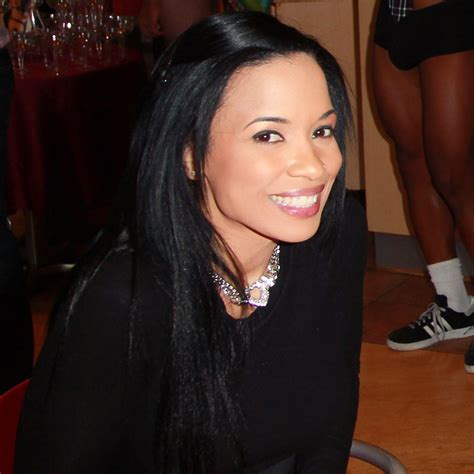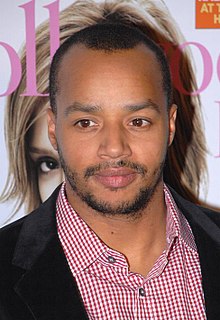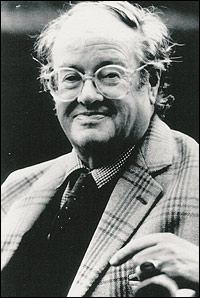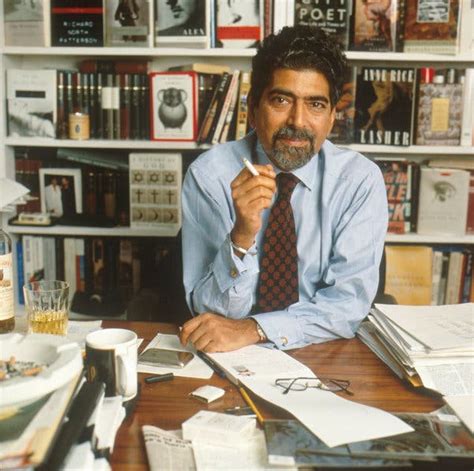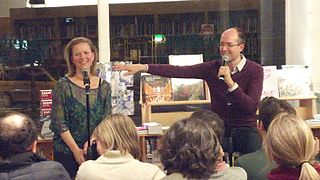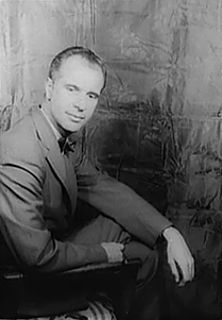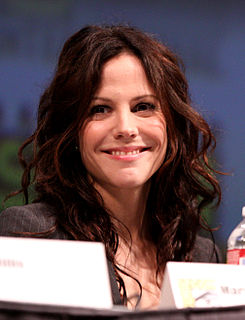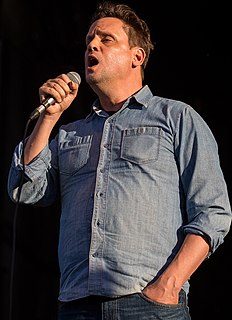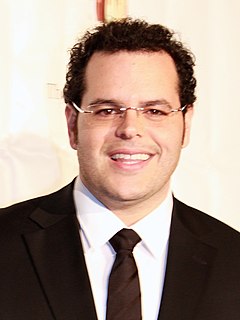Top 1200 Professional Writer Quotes & Sayings - Page 16
Explore popular Professional Writer quotes.
Last updated on December 19, 2024.
You flip the switch. Flip the switch and go into work mode. You're a professional, so be a professional. You can take care of your problems later, but you still have to go to work. You still have to make things happen. One bad day could turn into a bad year if you're not careful. Or, a bad rest of your life if you're not careful. Because of one day!
'Presumed Innocent' was written over a six to seven year period with intervals in between where I was figuring out the end of the book and writing other stuff... My life as a writer was carried on against the odds. I had written four unpublished novels by then... as a writer of fiction, I hadn't gotten very far. I just wanted to do it.
As an undergraduate, I took two writing workshops taught by Elizabeth Hardwick. She was certainly a major influence, though more as a writer I greatly admired than as a teacher. As for other writers, I think it's safe to say that my work has been and continues to be influenced to one degree or another by every writer whose work I love and admire.
I do not believe that it is necessarily the duty of the writer to give a voice to his community. If a writer is true to his vocation, to his or her vocation, the very process of creativity enlarges these human horizons. It provides insights, even when you're not writing, when your writing's not dealing with a concrete political situation.
I kept a lot of my thoughts inside myself. So, perhaps more than is normal, I'm always questioning my role as a writer. I'm always stopping and asking myself: Do I have the right to tell this story? Is it a story that deserves to be heard? And as for whether I think of myself as a Writer with a capital "W," I very much hope I never do.
People meet writers and are bowled over when the writer is friendly to them and invites them to his house for a glass of wine or to shoot up heroin or whatever they do, and they talk their heads off, and a year later it comes out in a book, and there follow years of bitter and fruitless litigation, and that is why you should always keep a writer at arm's length.
Of the total creative effort represented in a finished work, 75 percent or more of a writer's labor goes into designing the story designing story tests the maturity and insight of the writer, his knowledge of society, nature, and the human heart. Story demands both vivid imagination and powerful analytic thought.
When one crosses over from an activity, or the verb, of writing or doing, and becomes a noun, like "a writer" I think that is an act of supreme self-consciousness that I've never, in effect, made. I write, but I don't like to think of myself as a writer. I think it's somewhat self-aggrandizing and pretentious. Now, I am a teacher.
There must be an alternative between Hollywood and New York, between those two places psychically as well as geographically. The University of Iowa tries to offer such a community, congenial to the young writer, with his uneasiness about writing as an honorable career, or with his excess of ego about calling himself a writer.
I always credited my mother with inspiring me to be a writer because she was such a passionate reader. She read poetry to me as a child. But rather late in life, I've come to appreciate my father, the accountant. He was a solid, organized, get-the-job-done kind of person-and you need that piece of it to be a writer, too.
I do find that people are incredibly naive about what it is to be a writer. Like you would pay an incredible amount of money for an MFA program and still not have the slightest idea of how one goes about becoming a writer. So, I'm always flabbergasted when people say, "Oh, I was invited to do a reading, but I'm not going to read because I don't have a book.".
I'm a situational writer. You give me a situation, like a writer gets in a car crash, breaks his leg, is kidnapped by his number-one fan, and is kept in a cabin and forced to write a book - everything else springs from there. You really don't have to work once you've had the idea. All you have to do is kind of take dictation from something inside.
Creative non-fiction is such a liberating genre because it allows the non-fiction writer, whether he or she be journalist or essayist, to use all of the techniques of the fiction writer and all of the ideas, creative approaches, that fiction writers get a chance to use, but they have to use it in a true story.
I have been accused of being ignorant of economics (although I am the founder and Chairman of the Board of a company which publishes seven professional economic newsletters), of being ignorant of sociology (although I am trained in sociology and was C. Wright Mills' research assistant at Columbia), of being unable to use statistics (although I earned my living as a professional statistician for five years) and of ignoring political factors (although all my graduate training was in political science).
You must never let your personal life be outpaced by your professional life. If you do, [if] your professional life takes more of your time than your personal life, then that's called stress, okay? And it's called worry and things like that. Worry is a sign that you're trying to be God. The greatest stress reliever to me is this sentence: God is God, and I'm not.
I think reading is a gift. It was a gift that was given to me as a child by many people, and now as an adult and a writer, I'm trying to give a little of it back to others. It's one of the greatest pleasures I know." Ann M. Martin
"Never write anything that does not give you great pleasure. Emotion is easily transferred from the writer to the reader.
To be a writer is to sit down at one's desk in the chill portion of every day, and to write; not waiting for the little jet of the blue flame of genius to start from the breastbone - just plain going at it, in pain and delight. To be a writer is to throw away a great deal, not to be satisfied, to type again, and then again, and once more, and over and over...
Usually I'm trying to turn something around or turn it inside out and see what's underneath. I know that probably sounds incredibly vague but I never set out to be likeable or funny or anything like that. I'm just trying to tell the story in the best way that I can and serve the writer because it's really about the writer.
Throughout my life, there's just periods when I write and periods when I don't. I don't feel like anything's really blocked. "Writer's block" sounds so dramatic and worrisome, and I don't worry about it. I know deep down that I'm a writer, and it's just a matter of time until it comes back, and when it does, it'll be good like it's always been.
What caricature is in painting, burlesque is in writing; and in the same manner the comic writer and painter correlate to each other; as in the former, the painter seems to have the advantage, so it is in the latter infinitely on the side of the writer. For the monstrous is much easier to paint than describe, and the ridiculous to describe than paint.
If I were a first rate writer, I wouldn't mind a bit. What does depress me is this: it is so desperately hard and so obsessive and so lonely to write that, in return for all this work, one would like a little self satisfaction. And that is never going to come, for the simple reason that I do not deserve it. I cannot be a good enough writer. You see? I call it grim. But the future looks awfully clear to me.
If you give a little credit to the concept of the artist, I think you ought to indulge excesses a bit, because that reflects the personality of the writer. Now if a joke is in bad taste or it's not funny, okay, that's awhole different thing, but how you craft a joke is really what the writer's job is, and I don't think that technique should be subject to any editorial constraints.
I always think that the writer is doing the vast majority of the director's work, in a sense. If you're a writer who is also going to direct, you're doing all your preparation: You're already visualizing everything, you're imagining how the lines are going to be read, you see the blocking in your head, and you know the rhythm and the pacing.
Productivity is a relative matter. And it's really insignificant: What is ultimately important is a writer's strongest books. It may be the case that we all must write many books in order to achieve a few lasting ones - just as a young writer or poet might have to write hundreds of poems before writing his first significant one.
Writers remember everything...especially the hurts. Strip a writer to the buff, point to the scars, and he'll tell you the story of each small one. From the big ones you get novels. A little talent is a nice thing to have if you want to be a writer, but the only real requirement is the ability to remember the story of every scar. Art consists of the persistence of memory.
I love the beautiful distractions of the world - television and movies, video games, the Internet in general. But I try really hard to avoid them, because they don't help me become a better writer. They subtract hours from my day. And a writer's main currency is time. Time to daydream, time to walk and think, time to sit and do the work.
A hidden nerve is what every writer is ultimately about. It's what all writers wish to uncover when writing about themselves in this age of the personal memoir. And yet it's also the first thing every writer learns to sidestep, to disguise, as though this nerve were a deep and shameful secret that needs to be swathed in many sheaths.
I'm an indulgent writer - I'm not sure, however, that's something I'm interested in changing. Writing should be indulgent: you should take big risks on the page, you should make big mistakes, you should be excessive at times. I let myself do as a writer what I probably would be less likely to allow as an editor.
The writer is delegated to declare and to celebrate man's proven capacity for greatness of heart and spirit—for gallantry in defeat, for courage, compassion and love. In the endless war against weakness and despair, these are the bright rally flags of hope and of emulation. I hold that a writer who does not believe in the perfectibility of man has no dedication nor any membership in literature.
If you want to be a writer, all you need is a piece of paper and a pencil, and I had a manual typewriter. It doesn't cost money to write. It costs money to make art. So I would just write. I would hand out stories in the classes in high school. And the teacher would say, "Whatever you do, don't become a writer."
The writer is the duelist who never fights at the stated hour, who gathers up an insult, like another curious object, a collector's item, spreads it out on his desk later, and then engages in a duel with it verbally. Some people call it weakness. I call it postponement. What is weakness in the man becomes a quality in the writer. For he preserves, collects what will explode later in his work. That is why the writer is the loneliest man in the world; because he lives, fights, dies, is reborn always alone; all his roles are played behind a curtain. In life he is an incongruous figure.
Writers don't often say anything that readers don't already know, unless its a news story. A writer's greatest pleasure is revealing to people things they knew but did not know they knew. Or did not realize everyone else knew, too. This produces a warm sense of fellow feeling and is the best a writer can do.
Something that bothered people about 'Dawson's Creek' but as a writer, I kind of dug: writing those kids as though they were college grad students. It was fun and liberating and made for a true sort of writer's show. It was a fun year for me, because I got to get out of debt with my first TV job, and I learned a ton.

